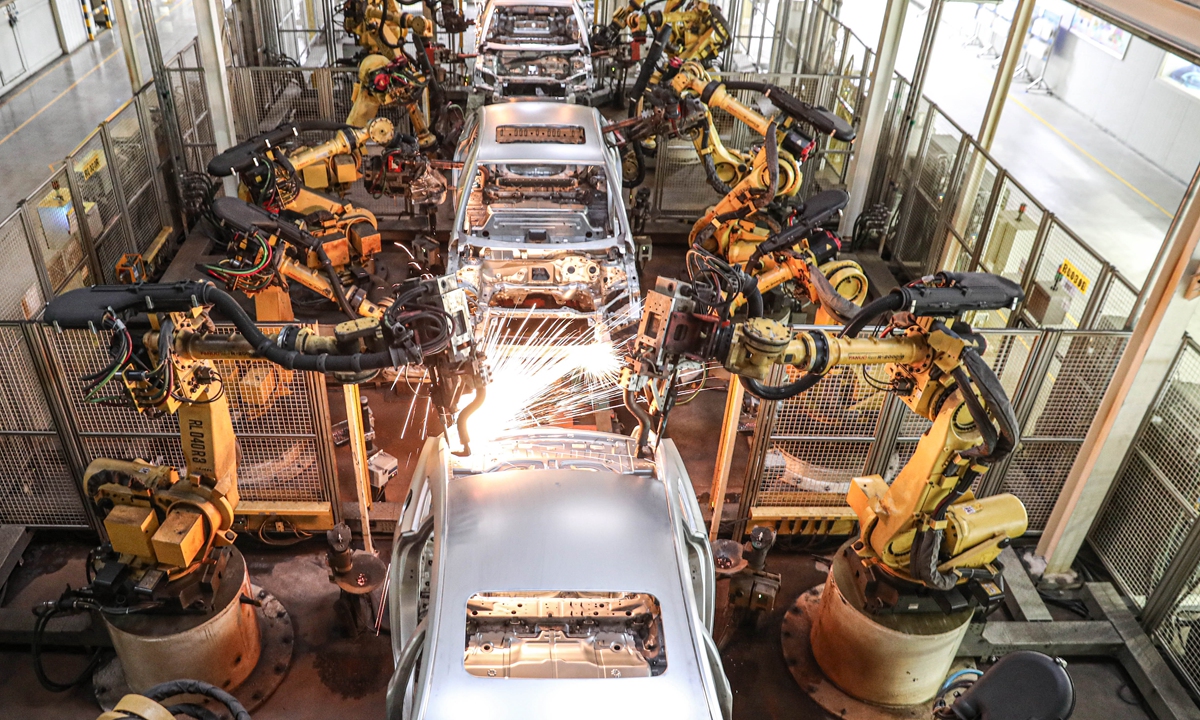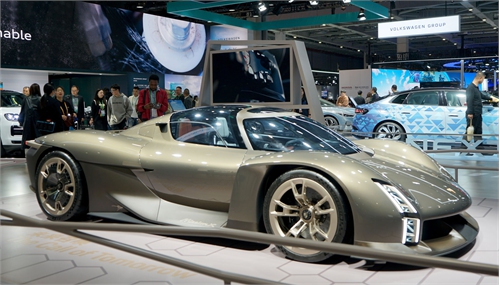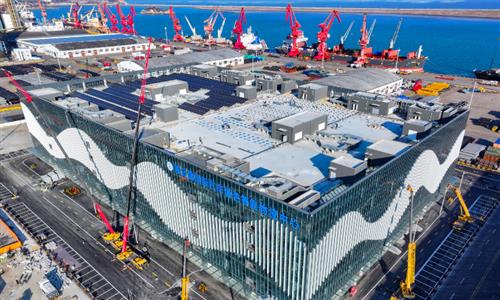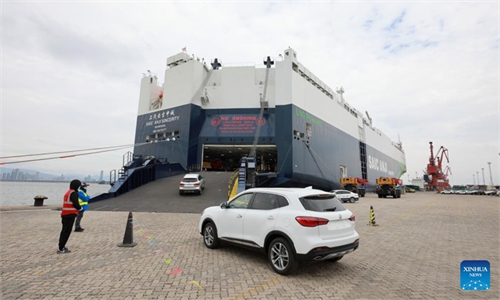
The automated production line at a car factory in Shenyang, Northeast China's Liaoning Province Photo: IC
Escalating US trade protectionism, and its behavior of politicizing economic issues and erecting more trade barriers to affect fair competition, will only harm the development of its own auto industry in the long run, He Yadong, a spokesperson of China's Ministry of Commerce (MOFCOM), said on Thursday.
Chinese cars are popular in the global market because of their innovative features and high quality rather than alleged low-price dumping, He said, responding to a question over media reports saying that the Alliance for American Manufacturing had asked the US government to block the import of low-cost Chinese automobiles and auto parts from Mexico.
In addition, a Reuters report said on Wednesday that Republican US Senator Josh Hawley has introduced legislation to hike tariffs on Chinese vehicle imports amid so-called concerns about the potential competitive impact on American car companies.
In recent years, the US side has erected barriers to thwart Chinese car imports, like levying additional tariffs, excluding Chinese car brands from US government procurement and implementing discriminatory subsidy policies, He said.
While the US erects barriers to hinder Chinese carmakers, China is always open to carmakers from across the world, He said.
US carmakers have fully enjoyed the dividends of China's huge market, with the sales volume of American brands far outpacing Chinese brands in the US. Protectionism by the US will only hinder its own auto industry's development in the long run, He said.
The MOFCOM spokesperson urged the US to respect the rules of the market economy and the principle of fair competition while correcting its non-market practices in order to build a fair environment for the long-term development of the auto industry.
The EU has also stepped up trade protectionism against Chinese automobiles, and recently, the EU's antitrust regulator launched an investigation into Chinese trainmaker CRRC Qingdao Sifang Locomotive, a subsidiary of CRRC Corp, the world's biggest producer of rolling stock.
Cui Dongshu, secretary-general of the China Passenger Car Association, told the Global Times that the protectionist moves of the US and EU violate the WTO principle of fairness, and robust exports of Chinese new-energy vehicles (NEVs) reflect the strong international competitiveness of China's industry chains rather than so-called subsidies.
In China, the subsidy granted to NEVs was completely phased out as of the end of 2022. In order to maintain fair competition, provinces across China were required to stop subsidies for NEVs starting from 2018, and subsequently, national subsidies were phased out in an orderly fashion, Cui said.
Cui is positive about the development of China's NEV sector on the back of its strong innovation capability, complete manufacturing system and strong supply chains.
China's vehicle exports surged 57.9 percent year-on-year to a record of 4.91 million in 2023 as the country's automakers expanded their presence overseas, according to data from the China Association of Automobile Manufacturers.
China-US economic and trade cooperation is a stabilizing force in bilateral relations. The Chinese side is willing to join hands with the US to implement the important consensus reached at the San Francisco meeting between the two heads of state to jointly promote the steady and healthy development of China-US economic and trade relations, Chinese Vice Commerce Minister Wang Shouwen said when meeting with a US Chamber of Commerce delegation led by the chamber's President and CEO Suzanne Clark in Beijing on Tuesday.
China will unswervingly promote high-level opening-up and it is hoped that member companies of the US Chamber of Commerce will continue to be deeply rooted in the Chinese market and achieve win-win development, Wang said.



